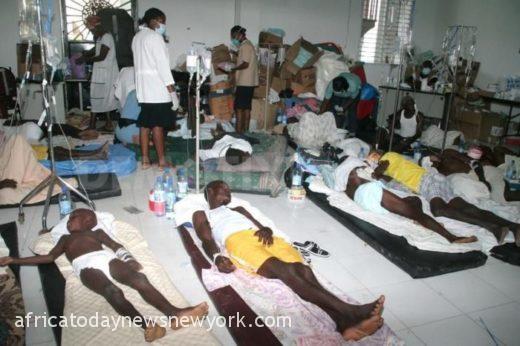In a fresh discovery, the Kano State Government has announced that it has recorded no fewer than 189 cases of Cholera in 20 Local Government Areas of the State this year thus confirming reports of the outbreak of the virus in the State.
Dr Aminu Tsanyawa, who is the Kano State Commissioner for Health had made confirmation of the cases at a news conference in Kano on Tuesday.
Tsanyawa had also noted that five deaths were recorded, while 184 of the cases were treated and the patients fully recovered.
Read Also: Cross River: Panic As Cholera Claims Seven Children
He noted that there had been a decline in cases of the outbreak as against in 2021 when the state recorded 12,116 cases with 329 deaths.
According to him, the Cholera outbreak is seasonal.
The commissioner further said that the risk factors for cholera transmission were poor personal and environmental hygiene.
Other risk factors, he said, included food and water contamination, poor waste disposal, and open defecation.
He, however, cautioned residents on effective hand washing, and personal and environmental hygiene to control the situation. He also called for the support of the media on public enlightenment in order to mitigate the outbreak to the minimum.
Tsanyawa reiterated the state government’s commitment to curtailing the situation and ensuring a healthy state.
He also commended the Kano Emirate Council for its effort in the enlightenment campaign on public health in general.
In another report, the Minister of Water Resources in Nigeria, Suleiman Adamu, yesterday revealed that Nigeria recorded 111,062 cases of cholera with 3,062 deaths in 33 states and the Federal Capital Territory last year.
He made this known in Abuja at a training workshop on cholera prevention, preparedness and response which was held to sensitise Nigerians on the need to stay alert.
The minister pointed out that the victims were mostly between five and 13 years old.
Adamu, represented by the Director, Water Quality Control and Sanitation, Emmanuel Awe, attributed the situation to “the unpreparedness” of most states.
He said most states were not trained on what to do at the outbreak of the disease and did not stock up the essential items to be used to prevent the spread.

